
Keytruda plus platinum-based chemotherapy appeared to be safe and effective in treating penile squamous cell carcinoma.

Keytruda plus platinum-based chemotherapy appeared to be safe and effective in treating penile squamous cell carcinoma.

For patients with cisplatin-ineligible bladder cancer, presurgical Padcev decreased the cancer stage without leading to delays in surgery.

Some patients with stage 3 non-small cell lung cancer saw benefits from Opdivo plus chemotherapy followed by surgery then Opdivo, researchers found.

Dato-DXd was efficacious in patients with non-small cell lung cancer with brain metastases who have certain gene alterations, a phase 2 study showed.

PolyPEPI1018 may boost the efficacy of Tecentriq in certain patients with colorectal cancer.

Belamaf plus bortezomib and dexamethasone lengthened the time patients with relapsed or refractory myeloma lived before their disease got worse.

Zanidatamab continued to lead to responses and improved overall survival in pretreated HER2-positive biliary tract cancer.
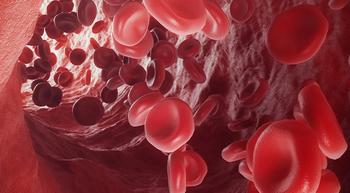
Patients with myelodysplastic syndromes tended to have longer periods of time without needing a red blood cell transfusion when treated with Reblozyl.
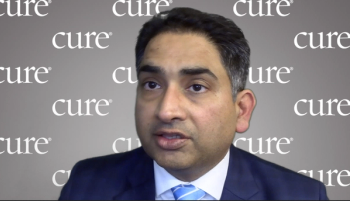
SurVaxM, which is being studied in gliobastoma, targets a certain protein that is found on the brain cancer cells.

The safety profile of 200 milligrams and 300 milligrams of oral Ongureg were similar in patients with lower- to intermediate-risk MDS.

Enhertu lengthened the time to progression in patients with HR-positive, HER2-low or -ultralow metastatic breast cancer.
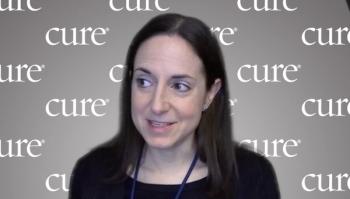
Presurgical paclitaxel, Herceptin and Perjeta showed “incredible efficacy” in treatment of HER2-positive breast cancer.

Perioperative chemotherapy with chemotherapy led to improved survival outcomes versus neoadjuvant chemoradiation in resectable esophageal cancer.

Blenrep, Pomalyst and dexamethasone improved progression-free survival compared to Velcade, Pomalyst and dexamethasone in patients with relapsed/refractory myeloma.

Opdivo plus Yervoy in the neoadjuvant setting reduced the risk for recurrence, progression or death, potentially offering patients with stage 3 melanoma a new standard of care.

Tagrisso following chemoradiotherapy improved progression-free survival compared with placebo in stage 3 EGFR-mutated non–small cell lung cancer.

Researchers found that adding retroperitoneal lymphadenectomy to cytoreductive surgery did not improve survival among patients with advanced ovarian cancer.

Researchers found telehealth care to deliver comparable quality-of-life benefits versus in-person visits among patients with advanced non-small cell lung cancer.

For the first time in decades, a new regimen — consolidation Imfinzi after chemoradiation — improved outcomes in patients with limited-stage small cell lung cancer.

Rybrevant plus Leclaza had promising response and progression-free survival rates in patients with EGFR-mutant non-small cell lung cancer.

Eight-year follow-up showed that Tafinlar plus Mekinist continued to improve outcomes for patients with stage 3 melanoma.

Rybrevant plus Leclaza outperformed Tagrisso regarding progression-free survival in patients with EGFR-mutant non-small cell lung cancer.

An Adcetris-based treatment regimen improved progression-free survival and was more tolerable for patients with classical Hodgkin lymphoma.

Lorbrena demonstrated longer progression-free survival and improved time to intracranial progression, compared with Xalkori in ALK-positive non-small cell lung cancer.
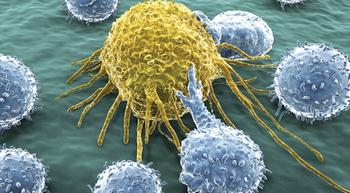
Scemblix outperformed standard tyrosine kinase inhibitor treatment in patients with Philadelphia chromosome-positive chronic myeloid leukemia.

Postmenopausal patients with ovarian or endometrial cancer who received conjugated equine estrogen may have increased mortality rates.

When compared with unvaccinated patients, HPV vaccines were associated with lower rates of HPV-related cancer for people younger than 40.

An artificial intelligence-based navigation tool may be used to call patients who previously missed their colonoscopy appointment with the goal that they will reschedule and attend the new appointment.

In a group of breast cancer survivors, 73% who attempted pregnancy were successful, though there were certain characteristics associated with an increased chance of getting pregnant.
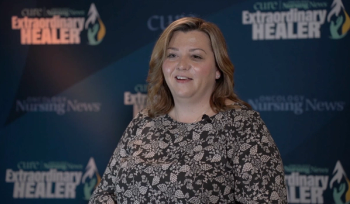
Jessica McDade, B.S.N., RN, OCN, explains how she helps make her patients’ experience “a little less daunting” during their hospital stay.